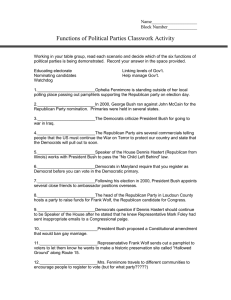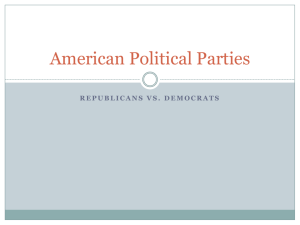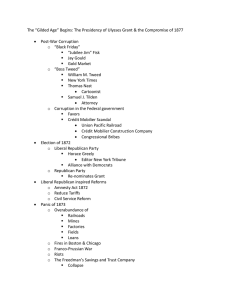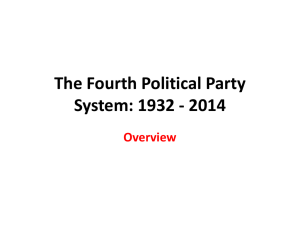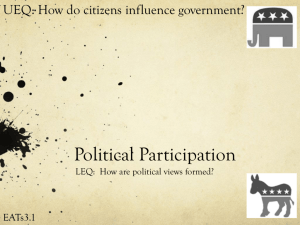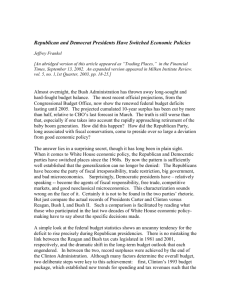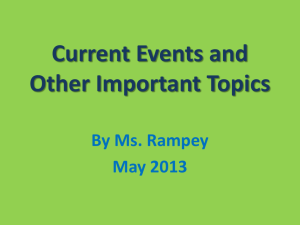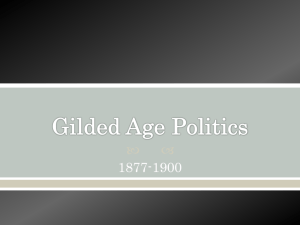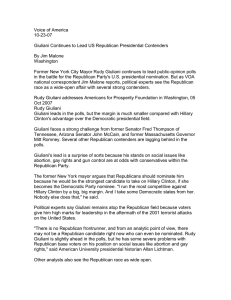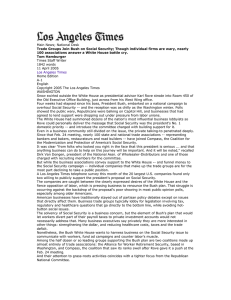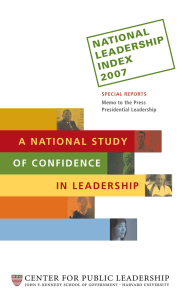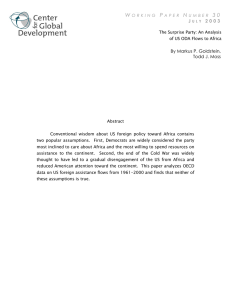Jerusalem Post, Israel 08-17-07 US Affairs: A shadow of their former selves
advertisement
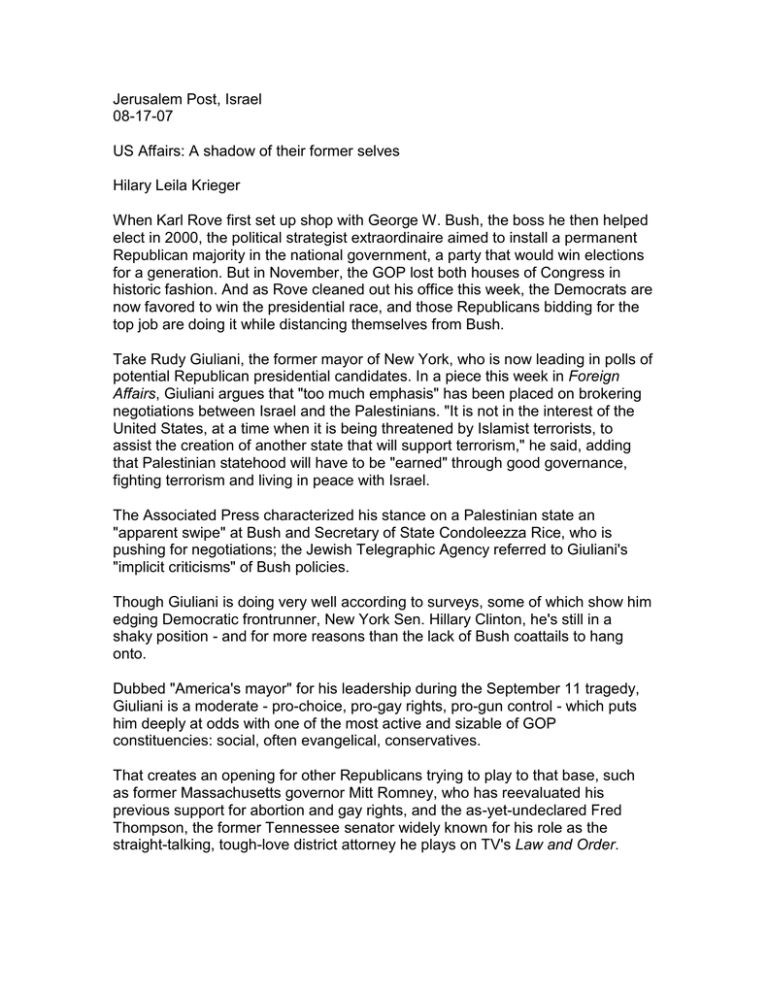
Jerusalem Post, Israel 08-17-07 US Affairs: A shadow of their former selves Hilary Leila Krieger When Karl Rove first set up shop with George W. Bush, the boss he then helped elect in 2000, the political strategist extraordinaire aimed to install a permanent Republican majority in the national government, a party that would win elections for a generation. But in November, the GOP lost both houses of Congress in historic fashion. And as Rove cleaned out his office this week, the Democrats are now favored to win the presidential race, and those Republicans bidding for the top job are doing it while distancing themselves from Bush. Take Rudy Giuliani, the former mayor of New York, who is now leading in polls of potential Republican presidential candidates. In a piece this week in Foreign Affairs, Giuliani argues that "too much emphasis" has been placed on brokering negotiations between Israel and the Palestinians. "It is not in the interest of the United States, at a time when it is being threatened by Islamist terrorists, to assist the creation of another state that will support terrorism," he said, adding that Palestinian statehood will have to be "earned" through good governance, fighting terrorism and living in peace with Israel. The Associated Press characterized his stance on a Palestinian state an "apparent swipe" at Bush and Secretary of State Condoleezza Rice, who is pushing for negotiations; the Jewish Telegraphic Agency referred to Giuliani's "implicit criticisms" of Bush policies. Though Giuliani is doing very well according to surveys, some of which show him edging Democratic frontrunner, New York Sen. Hillary Clinton, he's still in a shaky position - and for more reasons than the lack of Bush coattails to hang onto. Dubbed "America's mayor" for his leadership during the September 11 tragedy, Giuliani is a moderate - pro-choice, pro-gay rights, pro-gun control - which puts him deeply at odds with one of the most active and sizable of GOP constituencies: social, often evangelical, conservatives. That creates an opening for other Republicans trying to play to that base, such as former Massachusetts governor Mitt Romney, who has reevaluated his previous support for abortion and gay rights, and the as-yet-undeclared Fred Thompson, the former Tennessee senator widely known for his role as the straight-talking, tough-love district attorney he plays on TV's Law and Order. Having a candidate like Thompson to rally around might energize that base somewhat in and of itself, but right now the vital evangelical constituency - the reliable get-out-the-vote voters on which the level of Republican turnout largely depends - is so deeply enervated, it seems like a jump-start is needed. Bush's neoconservative bent, which means a muscular approach to foreign policy, hasn't sat well with many of them - particularly now that the war in Iraq is going badly. Republican scandals tarnished the strong "family values" image of certain members of the party and made some evangelicals think twice on election day in 2006 - a phenomenon which could be repeated. And even some of the agenda items that Rove touted as a means of creating a Republican majority ended up disquieting party loyalists. Education legislation imposing national standards - meant to appeal to suburban moderates - smacked of centralized big government control; immigration reform - aimed in part at easing conditions and winning votes among new Latino citizens - alienated Republican immigration skeptics (and failed to pass). LISTENING TO the stream of candidates appealing to hard-core supporters at the Republican straw poll Saturday, Iowa State University politics expert Dianne Bystrom was struck by the fact that not one of them mentioned Bush by name. Whatever the disaffection of the conservative base, the alienation of moderates whose swing vote is so crucial to winning elections - is more profound. A recent NBC/Wall Street Journal poll found that only 28 percent of Americans view the Republican party positively; those surveyed said they preferred that Democrats take the White House in 2008 by more than 20 points. And while the conservatives might be sapped, there's a corollary of reenergized Democrats. One poll found that 59% of Democrats were happy with their choices for president, while only 35% of Republicans were. On the left side of the aisle, the refrain from New Hampshire to Iowa is one of satisfaction with the choices. "The Democrats have an interesting slate of candidates," said longtime Democratic voter David Stahl of New Hampshire. "There's not a one that I wouldn't be reasonably happy with." But that doesn't mean a Democratic victory is assured, certainly not so many months before the November 2008 ballot and with the Democrats now back in control of Congress - and hence vulnerable to criticism that they're not governing well. Significant vulnerabilities exist among the frontrunners, including the charge that first-term Illinois Sen. Barack Obama lacks experience and that John Edwards, who lost as the vice presidential candidate in 2004, hasn't connected with voters as he strays to the left with an anti-poverty platform. And Hillary Clinton's biggest vulnerability might be that she's Hillary Clinton. (There are also naysayers who maintain the country won't elect a female or black candidate as president.) While Clinton has a strong resume and sticks to the center - refusing, for instance, to apologize for her vote to authorize the war in Iraq - the name recognition that helps her in polls is also the name recognition that hurts her. She is perceived as a polarizing figure, intensely disliked by those who dislike her. At the Republican straw poll, "Hillary" was heard as frequently as the term "Democrat," and it wasn't being sounded with affection. In fact, much as they loathe her, many conservative hope she'll win the nomination. Then, they figure, they'll have a cause that will electrify their base and get them out to the polls: keeping another Clinton out of the White House.
